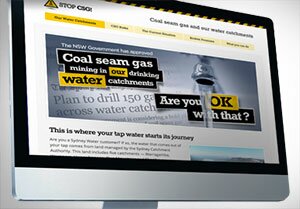After three days of debate, the ‘water trigger‘ – an amendment to the Environment Protection Biodiversity Conservation Act 1999 – passed the Senate last week.
Coal seam gas (CSG) projects that could affect water resources will now trigger Federal approval. The trigger will bring CSG projects in for consideration; a good but very limited measure that does not match the hype.
Just as we reported in March when the amendment was tabled, there is no guarantee that the amendment will stop projects that will damage water resources. This change allows the Federal Environment Minister to stop CSG projects that will impact water, but it also allows them not to.
While the Environment Minister must now take advice from the Independent Expert Scientific Committee on CSG development, before making a decision, it also makes them the sole decision maker. This advice is just information to be considered.

Visit the CSG and water catchments website
In short, The water trigger provides no objective, quantifiable protection.
The changes fail to define trigger points beyond an abstract definition of significant. ‘Significant’ is a subjective term – the Federal Government needs to tell the public what they consider significant, and what they do not.
The changes do not even mention drinking water catchments, when CSG – and the industrial development and toxic risks it brings – should simply be banned in these areas.